Running a successful Airbnb business takes more than a nice property and fresh linens. These days, you really need the right marketing tools to cut through the noise, keep your pricing sharp, and make daily operations less of a grind.
The most effective Airbnb hosts use a combination of dynamic pricing tools, automation platforms, and guest experience enhancers that can increase revenue by 15-25% while saving 10-20 hours of work each month.
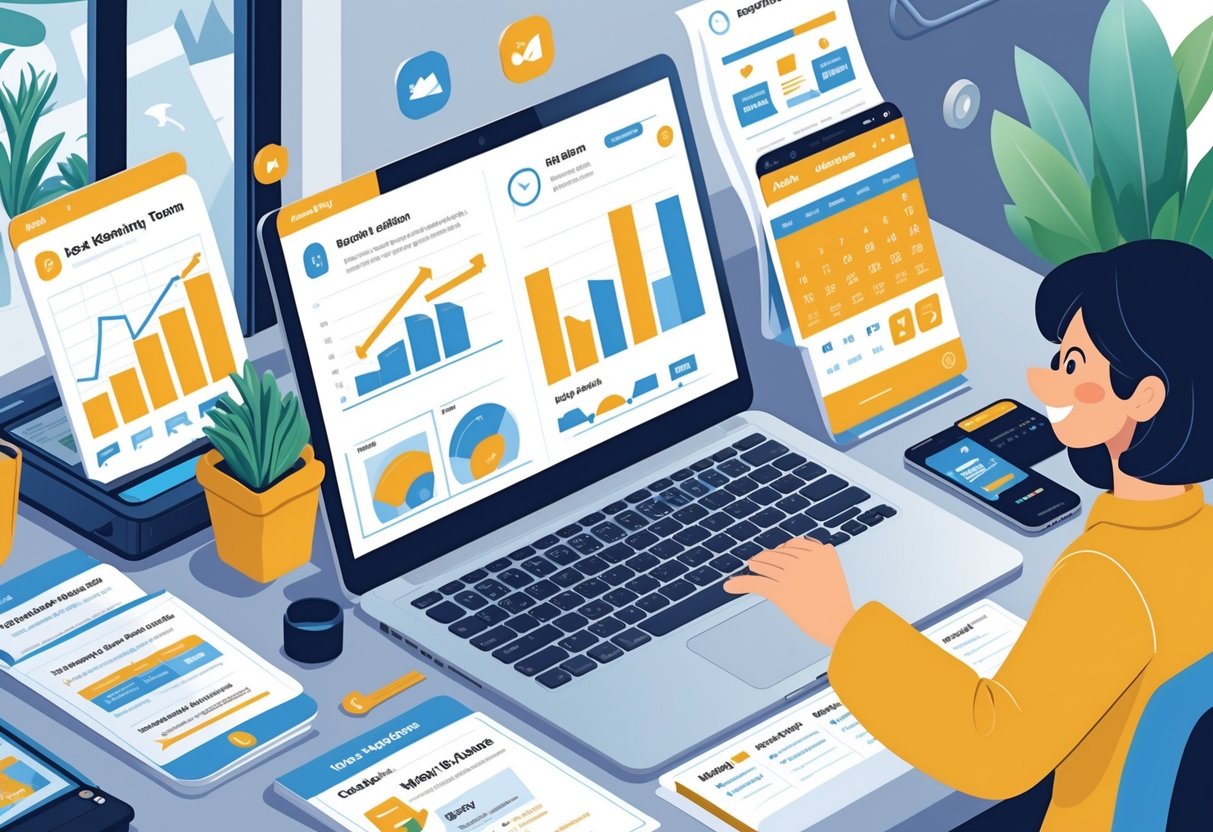
Smart vacation rental tools today help hosts automate everything from guest messages to price adjustments. These platforms take over the repetitive stuff, freeing you up to actually think about guest experience and business growth.
From AI-powered pricing optimization to automated guest communication, the right marketing tools can turn a struggling listing into a real earner. The real trick is picking tools that fit your needs and budget, and that actually move the needle.
Key Takeaways
- Dynamic pricing and automation tools can boost revenue by 15-25% while saving hosts significant time each month.
- Essential marketing tools include pricing optimization, guest communication automation, and multi-platform management systems.
- Successful hosts build their tool stack gradually, starting with core functions before adding specialized features for scaling operations.
Core Marketing Tools for Airbnb Hosts
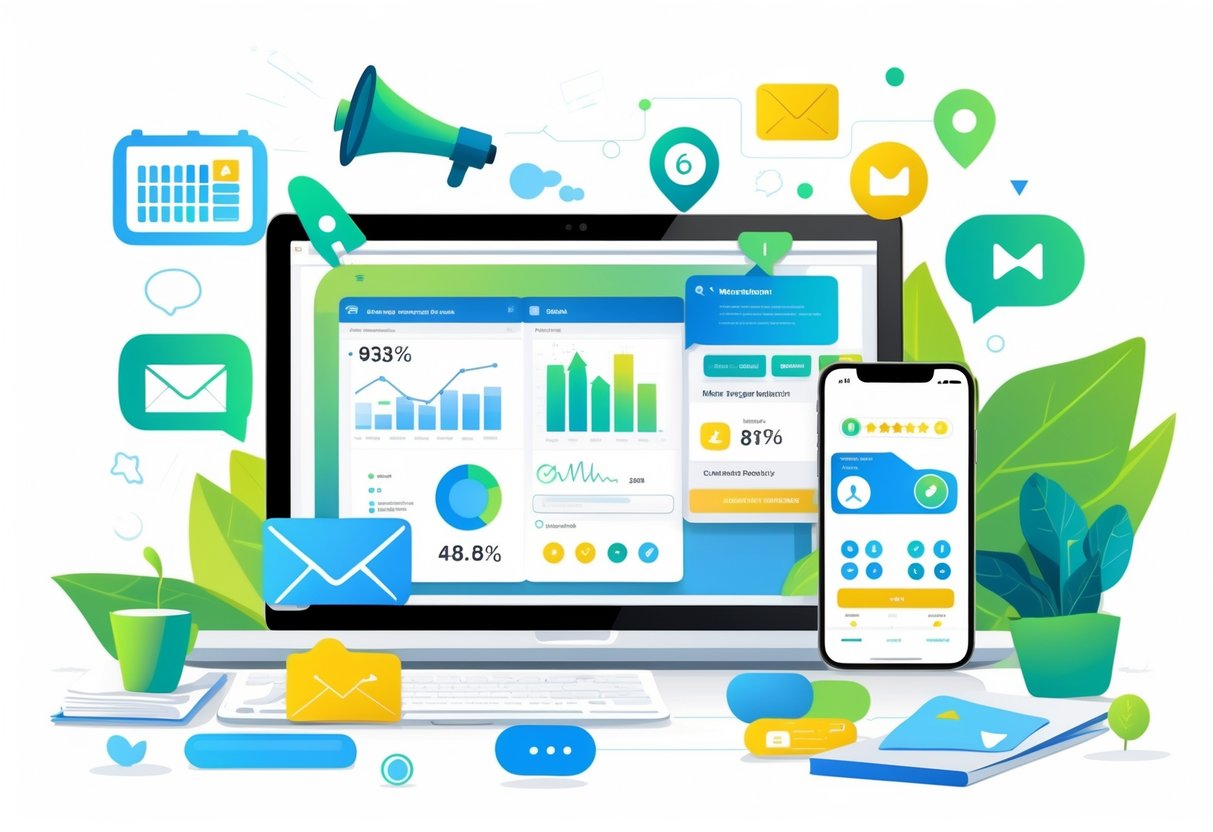
To really succeed as an Airbnb host, you need to leverage platform features, visibility tools, and solid communication systems. Using the right mix of Airbnb’s built-in features and automation tools can make a noticeable difference in bookings and guest happiness.
Overview of Built-In Airbnb Hosting Features
Airbnb gives hosts several native marketing features at no extra cost. Listings with complete profiles and sharp photos get favored in Airbnb’s search algorithm.
Smart Pricing automatically tweaks your rates based on demand and local happenings. You don’t have to keep adjusting things manually, which is a relief.
Instant Book bumps your listing up in search results. Guests love being able to book without waiting for approval.
The Superhost program gives experienced hosts a badge that builds trust. Superhosts keep high response rates, good reviews, and avoid last-minute cancellations.
Professional photography services are available in many areas. Great photos really do help you book more nights and charge higher rates.
The platform also has promotional pricing tools for new listings. Temporary discounts help you snag those first reviews and get some momentum.
Essential Tools for Increasing Listing Visibility
External tools can really up your game beyond what Airbnb offers. Dynamic pricing platforms can increase revenue by 15-25% by automatically optimizing your rates.
PriceLabs and Beyond Pricing scan market data to set your prices. They look at local events, seasonal swings, and what your competition is charging.
Photography and listing optimization tools help you craft more compelling descriptions. If writing isn’t your thing, professional copywriting can boost your booking conversion rate.
SEO optimization within Airbnb means using the right keywords in your title and description. It’s worth researching what travelers are searching for in your area.
Multi-platform listing lets you reach beyond Airbnb. Tools like Tokeet sync calendars across VRBO, Booking.com, and other platforms so you don’t double-book.
Social media integration is huge for direct bookings. Setting up an Instagram account to show off your space and local attractions can really help.
Streamlining Guest Communication
Great communication makes guests happier and saves you a ton of time. Comprehensive automation platforms save 10-20 hours monthly while still keeping things personal.
Message templates help you send consistent, professional info every time. Cover check-in details, local tips, and emergency contacts.
Automation tools for Airbnb hosts like Host Tools can send scheduled messages before, during, and after a guest’s stay. That way, you don’t forget anything important.
Digital guidebooks like TouchStay organize all your property info and local recommendations in one place—way easier than endless message threads.
Team management features let multiple people handle guest communication. If you’re running more than one property or working with a co-host, this is essential.
Automated review requests give you a better shot at getting feedback. A well-timed follow-up message can really boost your review count.
Dynamic Pricing Solutions
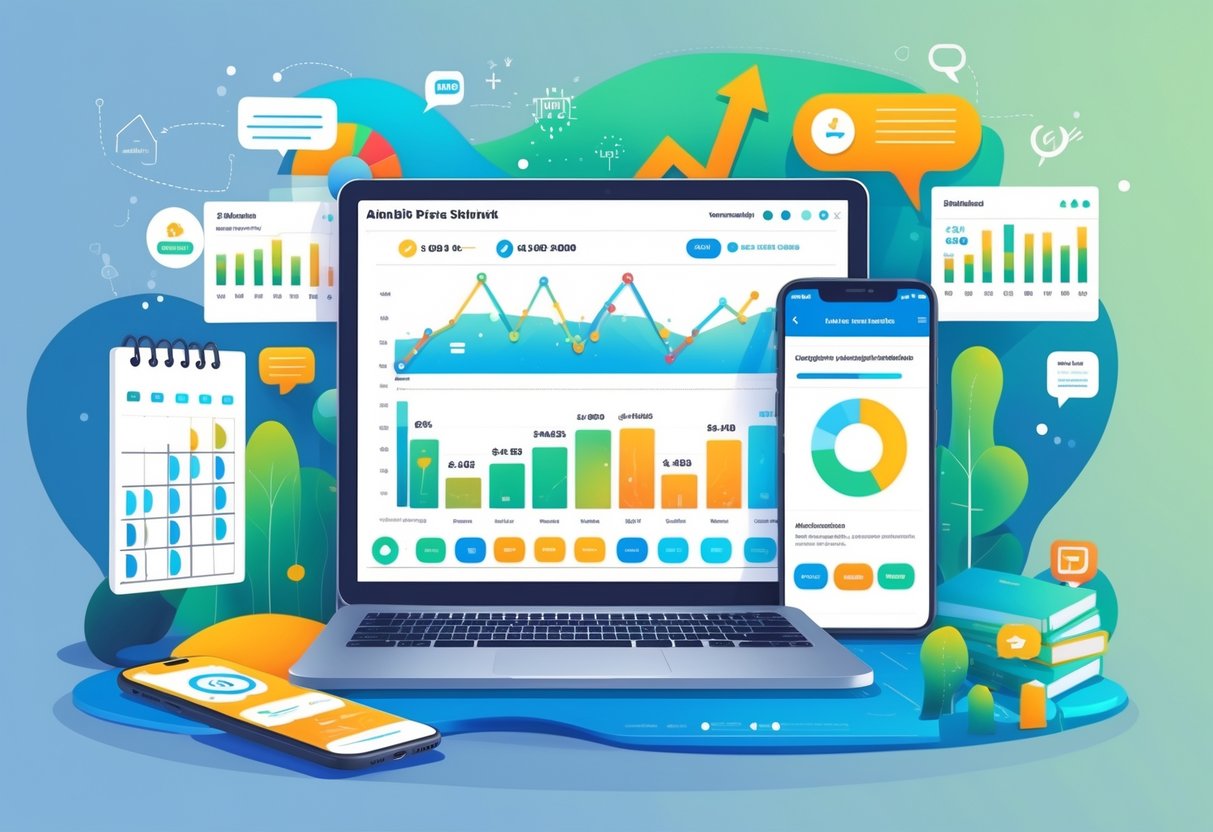
Dynamic pricing tools analyze market data and competitor rates to automatically adjust your rental prices. They factor in demand, seasonality, and local events to help you earn more with less effort.
How Dynamic Pricing Tools Work
These tools gather tons of market data to optimize your nightly rates. They check competitor pricing, local demand, and seasonal trends to spit out pricing recommendations.
They consider occupancy rates, booking windows, and special events when figuring out the best price. The software scans millions of listings across Airbnb, Vrbo, and more.
Most pricing tools update your rates daily or even in real time. You can let them auto-update your listings or just review their suggestions before making changes.
Key data points these tools look at:
- Competitor rates in your area
- Historical booking patterns
- Local events and holidays
- Day of week trends
- Seasonal demand swings
Implementing Automated Rate Adjustments
You can set minimum and maximum rates so the tool doesn’t go wild with your pricing. Most platforms let you tweak settings for stay length and how far in advance people book.
PriceLabs offers rules based on occupancy and booking windows, plus options for orphan days and cascading discounts. You get a lot of control over how aggressive you want to be.
If you use a property management system, it can sync your rates across all booking channels automatically. You can always override the tool’s suggestions if you want to run a special or block off a date.
Common automation features:
- Orphan day pricing: Lower rates for single-night gaps
- Length of stay discounts: Cheaper rates for longer bookings
- Last-minute adjustments: Price drops for unsold nights
- Event-based pricing: Rate hikes for local events
Popular Options: PriceLabs, Beyond, and Wheelhouse
PriceLabs started back in 2014 and now serves over 5,000 hosts. It costs $19.99 a month for one unit and goes up to $644 for 100 units. The interface isn’t the fanciest, but you get a ton of customization.
Beyond (used to be Beyond Pricing) powers rates for over 340,000 listings. They charge a 1% fee on all bookings and there’s no upfront cost. The dashboard is easy to use and doesn’t take long to learn.
Wheelhouse gives you three pricing strategies: Recommended, More Aggressive, and More Conservative. Some users say they’ve boosted profits by almost 40% after switching. You can pay 1% of bookings or a flat fee starting at $19.99 per listing.
| Tool | Pricing Model | Key Strength |
|---|---|---|
| PriceLabs | $19.99-$644/month | Advanced customization |
| Beyond | 1% booking fee | User-friendly interface |
| Wheelhouse | 1% fee or $19.99/listing | Strategy flexibility |
Property Management and Channel Integration
If you’re managing more than one property, or listing across several sites, you need efficient systems. Property management systems and channel managers help you keep everything in one place and avoid double bookings.
Centralizing Operations with PMS
A property management system (PMS) is your operations HQ. These platforms handle guest messages, bookings, and finances all in one dashboard.
Property management systems for Airbnb usually include automated messaging so you can send check-in info and follow-ups without lifting a finger.
Key PMS features:
- Automated guest messaging
- Financial reporting and analytics
- Cleaning and maintenance scheduling
- Multi-property dashboards
- Integration with third-party tools
Popular PMS options like iGMS charge about £0.79 per booked night. Others use monthly subscriptions starting around £20-100, depending on your property count.
The best PMS platforms connect directly with major booking sites. You don’t have to juggle a million browser tabs or logins.
Channel Managers and Calendar Syncing
Channel managers push your property info out to multiple booking platforms at once. They sync your prices, availability, and details across Airbnb, Vrbo, Booking.com, and more.
Airbnb channel managers are lifesavers if you have multiple listings. Update your info once, and it’s live everywhere.
Calendar syncing perks:
- Real-time updates across all platforms
- Centralized price management
- Consistent descriptions and photos
- Automated rules for minimum stays
Tokeet offers multi-channel management from £107 a month for up to 10 properties. Channel manager integration with 50+ platforms gives you max exposure.
Most channel managers update your calendar within minutes of a new booking. That speed is key for avoiding double bookings.
Preventing Double Bookings
Double bookings are basically a nightmare—two guests, same dates, one property. Not good.
Channel managers prevent double bookings by:
- Instantly blocking dates across all platforms
- Keeping calendars synced 24/7
- Sending updates when bookings are made or canceled
- Adding buffer time between stays if needed
Managing multiple listings is way safer with proper calendar syncing. The system marks dates as unavailable everywhere, automatically.
If you try to do this manually, you’re asking for trouble. Even a short delay updating your calendar during busy season can cause a mess.
Most pro channel managers promise 99.9% uptime for syncing. When the tech works, booking conflicts are almost nonexistent.
Automation and Workflow Optimization
Smart automation can cut your manual workload by up to 70%. Modern AI tools for vacation rental management cover everything from team coordination to guest turnovers.
Task Assignment and Team Coordination
Solid task management systems keep cleaning crews, maintenance, and managers on the same page. You can automate workflows to assign jobs based on bookings and property needs.
Key automation features:
- Automatic task creation after checkout
- Real-time status updates from team members
- Photo verification for finished work
- Emergency escalation protocols
Operations management tools use AI to spot urgent issues in guest messages. They’ll create maintenance tickets and send them to the right person right away.
Missed communications cost money. Automated systems send reminders, track completion, and keep everyone accountable with digital timestamps and check-ins.
Automating Cleaning and Turnover
Turnover automation is a huge time-saver. Platforms like TurnoverBnB and Turno link straight to your booking calendar to schedule cleanings automatically.
They figure out the best cleaning windows between guests, factoring in checkout times, travel distance, and crew schedules to avoid conflicts.
Automated turnover covers:
- Inventory tracking and restock alerts
- Damage checks with photo proof
- Quality control checklists
- Cleaning crew performance metrics
Airbnb automation tools can trigger different cleaning routines based on how long a guest stays. Long stays might get a mid-stay clean, while short ones stick to the basics.
Smart locks can sync with cleaning schedules, giving cleaners temporary codes that expire after their shift. No more lost keys or awkward handoffs.
Custom Workflows with AI
AI-powered workflows adapt to each property’s quirks and guest habits. These systems pick up on historical data and use it to fine-tune timing, resource allocation, and task prioritization.
Custom triggers kick in when certain things happen. For example, a string of low guest ratings might automatically schedule a deep clean. Maintenance requests can ping vendors and start follow-up reminders.
AI workflow capabilities:
- Predictive maintenance scheduling
- Dynamic pricing adjustments during turnover
- Guest communication templates by property type
- Performance analytics with optimization tips
Advanced systems talk to several platforms at once. They connect property management software, cleaning apps, and messaging tools so everything just… works together.
Machine learning chips away at inefficiencies over time. The AI flags bottlenecks, nudges you toward better processes, and tweaks schedules for seasonality or local events.
Enhancing Guest Experience and Security
Hosts today need tech that shields their property and still makes things easy for guests. Smart access controls, noise monitoring, and screening tools let hosts keep standards high—and dodge headaches before they start.
Smart Locks and Remote Access
Smart locks cut out the key handoff hassle and give hosts total control over who gets in. Guests get unique codes that only work for their stay, so late-night check-ins aren’t a problem.
Popular picks like August Smart Lock and Yale Assure Lock sync with most property management systems. Hosts can grant access remotely and see when people come and go.
The main perks:
- No more lost or copied keys
- Manage access from anywhere
- Auto-generated codes for each booking
- Entry logs for tracking
Smart home automation tools like Operto link locks with lighting, temperature, and security—so it all runs as one system.
Battery life? Usually 6-12 months, depending on use. Most smart locks fit over existing deadbolts, so installation’s usually a breeze.
Noise Monitoring and Prevention
Noise complaints can wreck a host’s reputation, lead to fines, or even get listings suspended. Noise monitoring devices spot high sound levels without recording conversations, so guest privacy stays safe.
Minut and NoiseAware stand out for real-time alerts when things get too loud. They measure decibel levels and can catch parties before neighbors even know.
Key features:
- Live noise level monitoring
- Instant alerts to your phone or email
- Privacy-friendly (no recording)
- Booking platform integration
- Crowd detection
Minut runs about $179 per device. NoiseAware starts at $45 monthly. Both have mobile apps so hosts can jump on issues fast.
Clear noise policies and monitoring devices keep neighbors happy. Some insurance companies even give discounts for having these systems.
Guest Screening Techniques
Solid guest screening keeps properties safe and occupancy high. Hosts need tools that check identity and booking risk without scaring off good guests.
Airbnb’s built-in checks require government ID and phone confirmation, but extra screening tools dig deeper.
Key screening methods:
- Read guest profiles and reviews
- Check social media for legitimacy
- Verify employment or income for long stays
- Use third-party verification
Security-focused tools for hosts scan booking patterns and guest behavior for red flags.
Some hosts take deposits or only accept guests with solid review histories. Local bookings from guests without reviews? Those get extra scrutiny.
How guests communicate in initial messages says a lot. Polite, professional messages usually mean they’ll respect your place.
Scaling Your Vacation Rental Business
Scaling your Airbnb business means putting systems in place to cut down on manual work. Growth is all about efficient multi-property management and using tech to make smart decisions.
Managing Multiple Listings Efficiently
Property managers need robust tools to juggle multiple listings without doubling their workload. Airbnb lets you update several listings at once, so you can tweak pricing, amenities, and booking settings across properties in one go.
Channel management tools are a must if you’re listing beyond Airbnb. They sync calendars, rates, and availability with platforms like Vrbo and Booking.com.
Key automation features for multiple listings:
- Automated messaging for guests
- Dynamic pricing
- Calendar sync
- Review response templates
The best managers use standardized processes for each property type. That means consistent check-in steps, cleaning routines, and guest messages.
Team coordination tools help assign tasks. Property management systems can divvy up cleaning, maintenance, and guest communication automatically.
Leveraging Data Insights for Growth
Data-driven decisions make a big difference in vacation rentals. Performance metrics show which properties earn the most and where you could expand.
Revenue optimization means tracking occupancy, average daily rates, and RevPAR. This data points to which markets and property types work best.
Market analysis tools help spot good acquisition targets. Look at:
- Seasonal demand swings
- Competitor pricing
- Local regulation changes
- Tourism trends
Guest feedback data highlights areas for improvement. Recurring complaints usually point to bigger issues.
Financial tracking gets tricky with more properties. Hosts need to track expenses, profit margins, and owner reports for each property.
Utilizing Advanced PMS Features
Property management systems (PMS) lay the foundation for real growth. Comprehensive PMS platforms bundle tools like channel management, automation, and analytics.
Advanced PMS features for scaling:
- Multi-property dashboards
- Owner portals
- Custom reports
- Accounting software integration
- Mobile apps
Guesty and Lodgify are top picks. Guesty has tiered plans for one or hundreds of listings, and Lodgify covers reservations and channel management.
Integration capabilities matter more as you grow. Your PMS should connect to pricing tools, cleaning services, smart locks, and accounting software.
Scalability features let the system grow with you: unlimited listings, team access levels, and custom workflow automation.
Frequently Asked Questions
Host marketing tools range from automated pricing software to digital guidebooks and analytics platforms. Prices are all over the map—some tools are free, while pro options can run from under £10 to over £100 a month.
What are the top-rated marketing tools used by successful Airbnb hosts?
Successful hosts use 13 best Airbnb tools for hosts in 2025 that cover pricing, guest messaging, and property management. Touch Stay leads for digital guidebooks at £9.99/month. Price Labs and Beyond Pricing handle automated pricing, starting at £19.99/month.
Multi-platform management tools like Tokeet and iGMS keep double bookings in check. These make it easier to run several listings.
Guest experience tools like Duve improve communication and offer upselling. Operto’s smart home automation helps with check-in and energy savings.
How can I access and utilize professional hosting tools on Airbnb?
The Airbnb app is where it all starts. It covers bookings, guest messaging, and performance tracking at no extra cost—just standard Airbnb fees.
Airbnb offers new hosting tools to grow your business like quick replies and scheduled messages. Hosts can share photos to introduce themselves and highlight important details.
Professional tools connect to Airbnb via API. This lets you sync calendars and transfer data between platforms automatically.
Most tools have free trials—usually 14 to 30 days—so you can test them before paying.
Are there any effective marketing strategies specific to Airbnb rental listings?
Airbnb content marketing for hosts means writing compelling descriptions and using great photos. Focus on what makes your place unique and nearby attractions.
SEO is a big deal for visibility. Mangools offers Airbnb-specific keyword research at £23.50/month.
Listing on multiple platforms boosts exposure. Hosts should try Vrbo and Booking.com alongside Airbnb.
Social media and influencer partnerships help with branding. Digital guidebooks double as marketing by showing off local tips and property features.
What free tools are available for marketing an Airbnb property?
AirDNA has a free plan for hosts with market research and basic analytics. It helps you check out local competition and pricing.
The Airbnb app itself offers plenty of free marketing features. Host profiles, photo galleries, and reviews build trust at zero cost.
Google My Business helps with local SEO and direct bookings. Instagram and Facebook are free ways to promote your place.
Email marketing with standard providers is cheap and effective for guest communication. Many hosts use free templates for pre-arrival and post-stay emails.
How does AirDNA assist Airbnb hosts in improving their rental performance?
AirDNA provides market supply and demand data so hosts can price smarter. It tracks competitor performance and spots market trends.
You can see how your listings stack up against similar ones. This highlights where you can tweak pricing or boost occupancy.
Market insights show seasonal demand changes. That info helps you plan your calendar and maximize revenue.
The platform breaks down local competition analytics. Hosts can adjust their approach based on what’s working for others nearby.
What are the implications of cost when using Airbnb professional hosting tools?
You really have to weigh the costs and benefits here. iGMS, for example, charges £0.79 for every booked night.
Tokeet’s pricing starts at £107 per month, but that covers up to 10 properties. So, if you manage more than a handful, it might make sense.
Price optimization tools like Price Labs claim they can bump your revenue by 10-20%. At £19.99 a month, the idea is that better nightly rates will cover that fee pretty quickly.
For cleaning management, TIDY charges 3% per cleaning job. That’s tied directly to your bookings, which feels fairer than a flat monthly bill.
If you’re juggling multiple properties, those pricier tools seem to pay off faster. But if you’ve just got one place, you’ll probably want to stick with something cheaper, like Touch Stay’s digital guidebooks at £9.99 a month.
Most of these tools throw in a free trial—usually between 14 and 30 days. It’s a chance to see if the numbers actually add up before you commit.

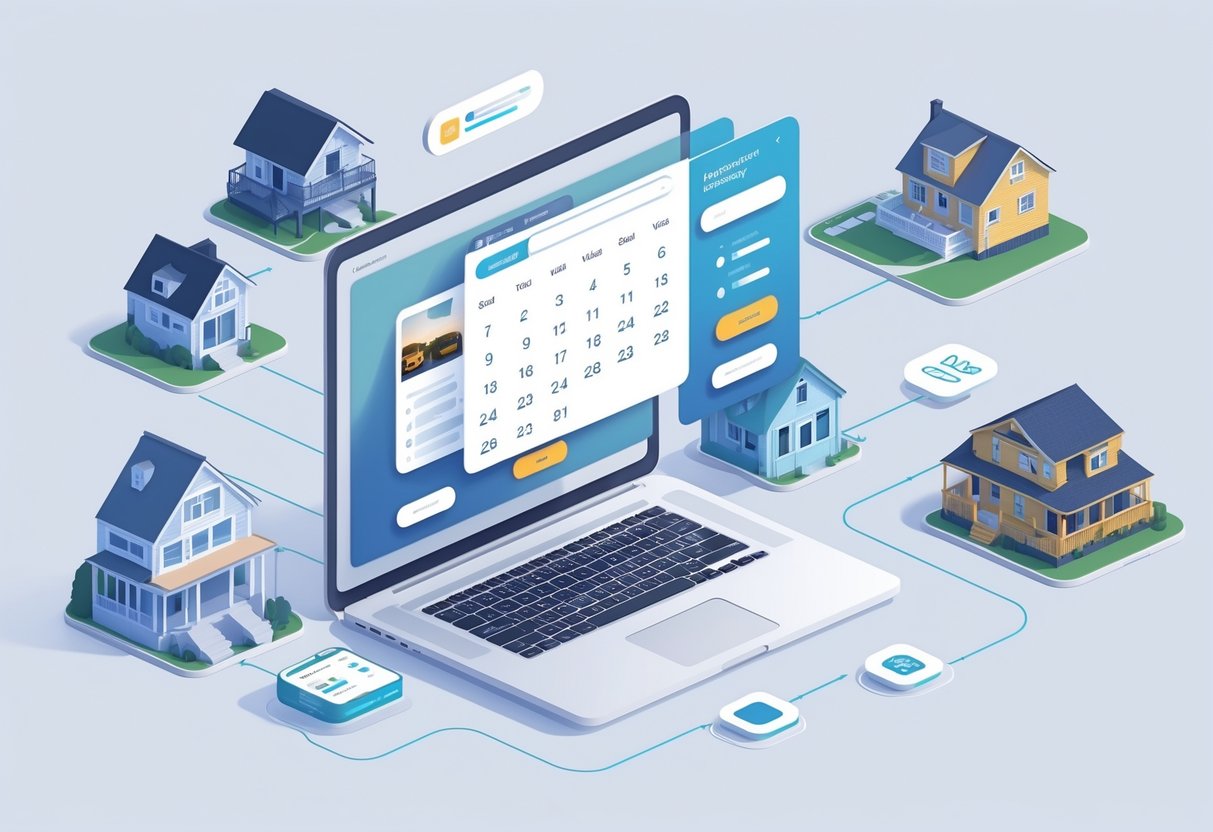

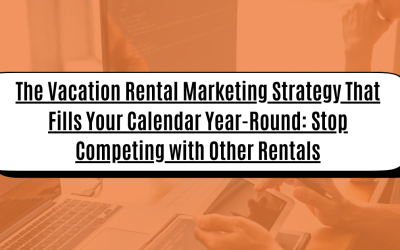

0 Comments